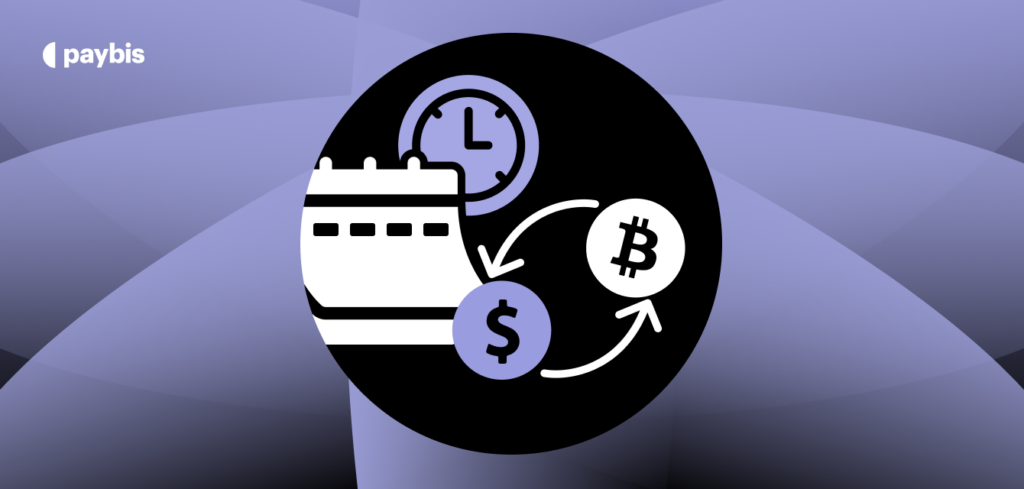Public Address
A Bitcoin public address is a one-of-a-kind identifier that typically consists of 26 to 35 alphanumeric characters. It is used on the Bitcoin network to send and receive bitcoins. Consider it the receiving point for your digital wallet, similar to an email address for cryptocurrency.
Table of contents
What is a Bitcoin Public Address?
A Bitcoin public address is like a digital bank account number for receiving Bitcoin. It’s a string of letters and numbers that anyone can use to send Bitcoin to your wallet, but it doesn’t give access to your funds. Each address is unique and can be generated freely from your wallet.
- Prefix: The prefix is the first section of a Bitcoin address that consists of 26-35 alphanumeric characters and is used to identify the network and version.
- Payload: This component of the address contains the real data, including the public key hash, which is essential for transaction security.
- Checksum: A checksum in a Bitcoin address is a value computed from the address’s payload to verify its integrity and detect errors in data entry or transmission.
Let’s look at this Bitcoin address example: 1BvBMSEYstWetqTFn5Au4m4GFg7xJaNVN2
In this example:
- Prefix: “1”
- Payload: “BvBMSEYstWetqTFn5Au4m4GFg7xJaNVN”
- Checksum: “2”
The prefix “1” is always the same for standard Bitcoin addresses, and the payload contains the variable data, including the public key hash. The checksum helps ensure the address’s integrity.
Why is a Cryptographic Address Important?
Cryptographic addresses, such as Bitcoin addresses, are crucial for digital currency security and functionality. They serve as the cornerstone for the blockchain network’s secure and transparent peer-to-peer transactions.
- Security: Cryptographic addresses are the gateway to send, receive and manage assets on the blockchain.
- Privacy: Cryptographic addresses aid in the preservation of user privacy. Because these addresses are not directly linked to personal information or identities, they provide pseudonymity.
- Transaction Routing: Cryptographic addresses ensure that funds in the blockchain network are transported correctly. They are used to identify the source and destination of Bitcoin transactions.
- Ease of Use: Cryptographic addresses make it easier to receive and send digital currency. Users can easily use their public addresses to accept payments from others, similar to how a traditional bank account number can be shared to receive deposits.
To use a Bitcoin address for transactions, you’ll first need to set up a secure Bitcoin wallet that generates and manages your public and private keys.
Bitcoin Address Formats
There are multiple formats of Bitcoin public addresses. Each plays a specific role within the Bitcoin ecosystem.
- P2PKH: Pay-to-Public-Key-Hash (P2PKH) addresses begin with ‘1’ and are commonly used for individual Bitcoin transactions.
- P2SH: Pay-to-Script-Hash (P2SH) addresses start with a ‘3’ and are frequently connected with complicated transaction scripts and multi-signature setups.
- Bech32: Bech32 addresses, which begin with ‘bc1,’ are a more current format that is optimized for Segregated Witness (SegWit) transactions, which offer lower fees and increased efficiency.
Bitcoin Address Examples
P2PKH (Pay-to-Public-Key-Hash)
- Format: Addresses start with the number ‘1.’
- Example: 1Awyd1QWR5gcfrn1UmL8dUBj2H1eVKtQhg
P2SH (Pay-to-Script-Hash)
- Format: Addresses start with the number ‘3.’
- Example: 3QJmV3qfvL9SuYo34YihAf3sRCW3qSinyC
Bech32
- Format: Addresses start with ‘bc1.’
- Example: bc1q42kjb79elem0anu0h9s3h2n586re9jki556pbb
Taproot (BC1P)
- Format: Addresses start with ‘bc1p.’
- Example: bc1pqm4pxgs90ywjpx7u8muj9lsrxcgmpayl94udx4zqey4s89e0k76sjefsk
Bitcoin Blockchain Explorer
A Bitcoin blockchain explorer (a.k.a. block explorer) helps you deep dive into the nitty-gritty of what’s going on in the network – from currency flows to contract interactions.This is useful for tracing payments, verifying transactions, or simply studying the network activity.
Blockchain.com, for example, is one of the most popular Bitcoin block explorers. Let’s have a look at this explorer to see how it works.
- Go to Blockchain.com Explorer.
- Enter the Address: In the search bar, enter the Bitcoin address you want to explore and hit “Search.”
- Explore Address Details: You’ll be given an overview of the address, including its balance, transaction count, and other details.
- Transaction History: Scroll down to see a list of recent address-related transactions. You may receive more information about each transaction by clicking on it.
- Graphical Representation: Blockchain.com displays a graphical representation of transaction history, allowing you to see how Bitcoin has moved in and out of the address.
- Other Features: On the platform, you may also explore blocks, check data, and access extra tools and information.
How is a Bitcoin Public Address/Key Used?
When you want to receive Bitcoin, you share your Bitcoin address, which comes from your public key. The public key works with your private key to create a secure system for transactions.
Your Bitcoin address is derived from your public key, which itself comes from your private key. While your public address can be shared openly, your private key must be kept secure as it controls access to your funds.
When someone sends Bitcoin, they sign the transaction digitally, and your public key helps the network verify it. This ensures the payment is valid, prevents double-spending, and keeps the blockchain secure.
FAQ
How to trace Bitcoin address owner?
It is generally not possible to immediately trace the owner of a Bitcoin address through the blockchain because Bitcoin transactions are pseudonymous and users’ identities are not directly attached to their addresses. However, in some situations, law enforcement agencies or specialized blockchain analysis firms may employ various approaches, such as analyzing transaction patterns and connecting them with known entities, to attempt to find the owner of a Bitcoin address.
How do I get a Bitcoin address?
An easy way to get a Bitcoin address is just to sign up on Paybis for a Paybis Wallet. If you’re new to Bitcoin, getting a Bitcoin address is simple. You can create one by signing up for a wallet or using a platform where you buy Bitcoin to get started with your first transactions.
You can send and receive BTC through our Bitcoin wallet. Alternatively, you can download a software wallet or buy a hardware wallet that supports BTC.
What is the 42-character Bitcoin address?
A Bitcoin address is normally between 26 and 35 characters long and is alphanumeric in nature. There is no such thing as a conventional 42-character Bitcoin address.
Is my Bitcoin address unique?
Yes, Bitcoin addresses are intended to be one-of-a-kind. Each Bitcoin address is generated by a unique combination of a user’s private key, and the possibility of two addresses being the same is extremely low due to the large number of possible combinations.
Can I verify a Bitcoin address?
Yes, you may use a Bitcoin block explorer to check the transaction history connected with a certain address to validate it. You may confirm the address’s legitimacy and view its transaction history by entering it into a block explorer. This can assist you in sending Bitcoin to the correct address.
Can someone use my BTC address?
Bitcoin can be sent to your BTC address, and Bitcoin may be received at that address. Your BTC address serves as a public receiver for cryptocurrency transactions. However, it is critical to keep your private key, which is used to spend your Bitcoin, private and secure. It is safe to share your BTC wallet address, but not your private key.
Are Bitcoin addresses case-sensitive?
Yes, Bitcoin addresses are case sensitive. A Bitcoin address is a string of alphanumeric characters that can include both uppercase and lowercase letters. This is because Bitcoin addresses are encoded using the Base58Check encoding, which is designed to prevent confusion between similar-looking characters and includes both case-sensitive letters and numbers. It’s important to always double-check the address before sending any transactions to ensure the accuracy of the address. However, the newer Bech32 addresses are not case sensitive.
Disclaimer: Don’t invest unless you’re prepared to lose all the money you invest. This is a high‑risk investment and you should not expect to be protected if something goes wrong. Take 2 mins to learn more at: https://go.payb.is/FCA-Info


